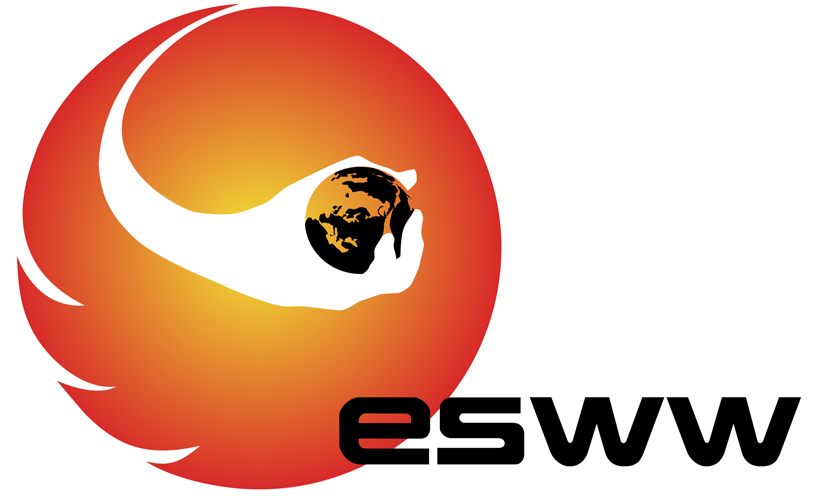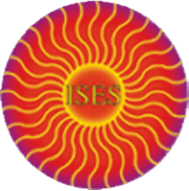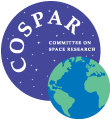
16-20 November, 2009 - Brugge, Belgium
Main Sessions
The meeting will centre on 5 open sessions that address a number of topical themes:
Session 1: Space Weather and Space Situational Awareness
Session 2: Space Weather Impacts on Communication Systems
Session 3: Space Weather Products and Services
Session 4: Space Weather and Health Issues
Session 5: Space Weather Models: from Research to Applications
Each session will be divided into oral and poster session with plenty of time devoted to discussion. Contributed papers are welcome to each of the 5 sessions. The oral presentations will cover a range of scientific and applications related themes and will consist of both invited and contributed papers. User contributions are expected to feature strongly in sessions 1, 2 and 3 in particular. It is also envisaged that the meeting will conclude with a wrap-up of the key issues arising during the week long event in the form of a round table discussion on future European directions in space weather.
Program per Session
Oral: Session 1 - Session 2 - Session 3 - Session 4 - Session 5
Posters: Session 1 - Session 2 - Session 3 - Session 4 - Session 5
Session Descriptions
Conveners: A. Hilgers, J.-Y. Prado
The purpose of this session is to discuss ESA SSA initiative and related opportunities in the area of Space Weather.
The key topics addressed are:
Contributed papers (oral and posters) are expected to address the consequences and mitigation methods of space weather effects from the end user point of view and are especially solicited in the area of:
Session 2: Space Weather Impacts on Communication Systems
Conveners: I Stanislawska, D Altadill
The knowledge of the space weather related issues has grown in the past two decades, they being essential components of many applications. The telecommunications is one these applications of great importance. Space weather events (like solar flares, coronal mass ejections and others) and their effects on the Earth environment (like particle precipitation, geomagnetic and ionospheric storms, etc) can cause modification of the signal propagation and scintillation in different part of spectrum with the result of a spoiled quality of the communication. A better understanding of space weather impact on telecommunication systems is crucial for mitigating the deterioration of these systems. The adaptive telecommunication systems need parameters to operate in the disturbed environment and space weather information is crucial. Thus, the space weather information can help to the improvement of the quality in terrestrial, earth-space communication, navigation, surveillance, as well as signal intelligence recognition. In addition, the satellite communication is affected by the troposphere meteorology (e.g. clouds, fog, dirt, sand and severe air pollution). Water precipitation in the propagation path can cause severe signal attenuation and even complete signal loss. Therefore, the solar activity influence on the troposphere weather is also of interest for telecommunication systems.
This session aims to address the space weather from the perspective of the signal propagation of different parts of the spectrum at the near Earth's environment. Included topics are:
Session 3: Space Weather Products and Services
Conveners: D Heynderickx
This session will focus on the application and implementation aspects of space weather tools, models and services covering the full range of space weather domains. It will address the current needs and feasibility studies, methods and IT techniques (networks, grids, databases, web services, ...) to implement and use on-line services. The oral programme will be a mixture of invited and oral presentations. The session welcomes contributions concerning services addressed to the research community based on the on-line implementation of space weather models as well as real-time services tailored to serve specific operational applications.
Both service developers and service users are encouraged to submit contributions. Service developers should address the implementation issues as well as plans for upgrading or expanding services. Service users should describe how they use the service(s) and integrate them into their own application, as well as an assessment of services (current performance and suggestions for upgrades and developments) as feedback to the service developers.
Session 4: Space Weather and Health Issues
Conveners: N Crosby, G Reitz
The topic of health issues is an important side of the space weather scenario. For human space flight (e.g. ISS, back to the Moon, interplanetary space travel) space radiation is a key issue to be dealt with, mainly, the galactic cosmic ray background as well as solar energetic particle events. Extreme solar storms can also be a cause of health concern for jet airliners flying frequently on high geo-latitudes routes. This session invites abstracts concerning these traditional space weather health issues, as well as new markets such as space tourism. Effects of space weather on the surface of planets (with or without magnetic fields) will also be considered, especially in respect to the Aurora programme. Abstracts regarding forecasting, modelling, mitigation techniques, as well as legal issues are all welcome, both from scientific as well as technical points-of-view.
Session 5: Space Weather Models: from Research to Applications
Conveners: M Angling, P Wintoft
Space weather is an important factor in the design and operation of many technological systems. At a time when society is becoming increasing reliant on such systems, and as we enter a new solar cycle, it is important that space weather models are available which are well matched to the requirements of users and operators. Clearly, such models must include a combination of scientific rigor and pragmatic engineering and must be based on a detailed understanding of the application domain.
This session will accept papers across the full range of space weather domains (examples include, but are not limited to, particle effects, thermospheric drag, ionospheric effects, geomagnetically induced currents). In particular we seek papers that describe how existing operational models have been developed from research model precursors, or how research models are being modified for operational use. In either case, it is expected that papers will also provide a strong justification of the requirement for the model development.
Session 2: Space Weather Impacts on Communication Systems
Session 3: Space Weather Products and Services
Session 4: Space Weather and Health Issues
Session 5: Space Weather Models: from Research to Applications
Each session will be divided into oral and poster session with plenty of time devoted to discussion. Contributed papers are welcome to each of the 5 sessions. The oral presentations will cover a range of scientific and applications related themes and will consist of both invited and contributed papers. User contributions are expected to feature strongly in sessions 1, 2 and 3 in particular. It is also envisaged that the meeting will conclude with a wrap-up of the key issues arising during the week long event in the form of a round table discussion on future European directions in space weather.
Program per Session
Oral: Session 1 - Session 2 - Session 3 - Session 4 - Session 5
Posters: Session 1 - Session 2 - Session 3 - Session 4 - Session 5
Session Descriptions
Conveners: A. Hilgers, J.-Y. Prado
The purpose of this session is to discuss ESA SSA initiative and related opportunities in the area of Space Weather.
The key topics addressed are:
- Space policy aspects
- Customer requirements
- Development requirements and existing assets
Contributed papers (oral and posters) are expected to address the consequences and mitigation methods of space weather effects from the end user point of view and are especially solicited in the area of:
- risk management of space systems operation
- spacecraft drag
- perturbation of GNSS applications
Session 2: Space Weather Impacts on Communication Systems
Conveners: I Stanislawska, D Altadill
The knowledge of the space weather related issues has grown in the past two decades, they being essential components of many applications. The telecommunications is one these applications of great importance. Space weather events (like solar flares, coronal mass ejections and others) and their effects on the Earth environment (like particle precipitation, geomagnetic and ionospheric storms, etc) can cause modification of the signal propagation and scintillation in different part of spectrum with the result of a spoiled quality of the communication. A better understanding of space weather impact on telecommunication systems is crucial for mitigating the deterioration of these systems. The adaptive telecommunication systems need parameters to operate in the disturbed environment and space weather information is crucial. Thus, the space weather information can help to the improvement of the quality in terrestrial, earth-space communication, navigation, surveillance, as well as signal intelligence recognition. In addition, the satellite communication is affected by the troposphere meteorology (e.g. clouds, fog, dirt, sand and severe air pollution). Water precipitation in the propagation path can cause severe signal attenuation and even complete signal loss. Therefore, the solar activity influence on the troposphere weather is also of interest for telecommunication systems.
This session aims to address the space weather from the perspective of the signal propagation of different parts of the spectrum at the near Earth's environment. Included topics are:
- HF Communication Frequencies and the Solar Cycle
- Solar Flares and HF Communication Fadeouts
- Ionospheric Disturbances and HF Communications
- Space Weather and VLF, LF, and MF as well as VHF propagation affected by ionosphere and higher frequency signals (X, K and higher bands ) affected by troposphere
- Mitigation of space weather effects
Session 3: Space Weather Products and Services
Conveners: D Heynderickx
This session will focus on the application and implementation aspects of space weather tools, models and services covering the full range of space weather domains. It will address the current needs and feasibility studies, methods and IT techniques (networks, grids, databases, web services, ...) to implement and use on-line services. The oral programme will be a mixture of invited and oral presentations. The session welcomes contributions concerning services addressed to the research community based on the on-line implementation of space weather models as well as real-time services tailored to serve specific operational applications.
Both service developers and service users are encouraged to submit contributions. Service developers should address the implementation issues as well as plans for upgrading or expanding services. Service users should describe how they use the service(s) and integrate them into their own application, as well as an assessment of services (current performance and suggestions for upgrades and developments) as feedback to the service developers.
Session 4: Space Weather and Health Issues
Conveners: N Crosby, G Reitz
The topic of health issues is an important side of the space weather scenario. For human space flight (e.g. ISS, back to the Moon, interplanetary space travel) space radiation is a key issue to be dealt with, mainly, the galactic cosmic ray background as well as solar energetic particle events. Extreme solar storms can also be a cause of health concern for jet airliners flying frequently on high geo-latitudes routes. This session invites abstracts concerning these traditional space weather health issues, as well as new markets such as space tourism. Effects of space weather on the surface of planets (with or without magnetic fields) will also be considered, especially in respect to the Aurora programme. Abstracts regarding forecasting, modelling, mitigation techniques, as well as legal issues are all welcome, both from scientific as well as technical points-of-view.
Session 5: Space Weather Models: from Research to Applications
Conveners: M Angling, P Wintoft
Space weather is an important factor in the design and operation of many technological systems. At a time when society is becoming increasing reliant on such systems, and as we enter a new solar cycle, it is important that space weather models are available which are well matched to the requirements of users and operators. Clearly, such models must include a combination of scientific rigor and pragmatic engineering and must be based on a detailed understanding of the application domain.
This session will accept papers across the full range of space weather domains (examples include, but are not limited to, particle effects, thermospheric drag, ionospheric effects, geomagnetically induced currents). In particular we seek papers that describe how existing operational models have been developed from research model precursors, or how research models are being modified for operational use. In either case, it is expected that papers will also provide a strong justification of the requirement for the model development.
 |
 |
 |
 |
 |
 |
 |